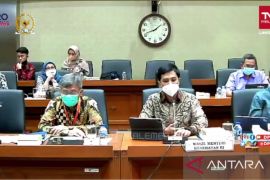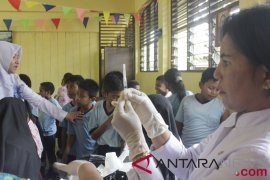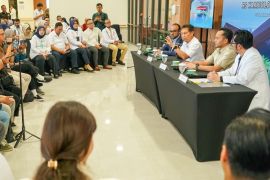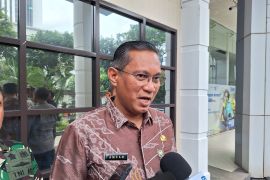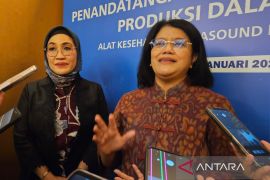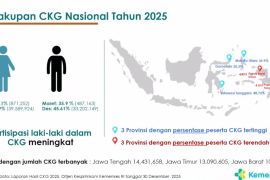"Several years ago, the Health Ministry had urged (people to partake in) rubella vaccination. However, it turns out that the coverage is still small in some areas," Bashiruddin stated at the 2022 World Hearing Day Media Gathering as seen here on Tuesday.
Bashiruddin noted that one of the factors that could cause a baby to be born with defects, such as being congenitally deaf, was the low rate of rubella immunization. In Indonesia, the number of babies born deaf was one in every one thousand births.
Related news: Most COVID-19 patients who died still unvaccinated: Health Minister
Babies exposed to toxoplasma and herpes could also experience deafness. Thus, efforts to proffer basic immunization to children must be extended immediately, so that the government could prevent congenital hearing loss in children.
“We are concerned (over the possibility) that congenital deafness may occur. Hence, vaccination is necessary to prevent this congenital hearing loss,” she noted.
Acting Director of Prevention and Control of Non-Communicable Diseases at the Health Ministry, Elvieda Sariwati, stated that low birth weight among babies was also a contributing factor to deafness in newborn children.
Related news: Health posts treat 501 refugees of W Sumatra's earthquake
Babies born with low weight must be monitored to ascertain their conditions, and regular health checks should be conducted within a period of up to six months from their day of birth in order to find whether the infant had congenital deafness.
Sariwati stated that Indonesia was ranked third in Asia in terms of low birth weight among babies. Having low birth weight puts a baby at risk of congenital deafness, she noted.
Related news: Hearing aid supply fails to meet global needs: Health Ministry
Related news: Gov't strategizing to change pandemic status to endemic: Minister
Translator: Hreeloita D S, Mecca Yumna
Editor: Fardah Assegaf
Copyright © ANTARA 2022

